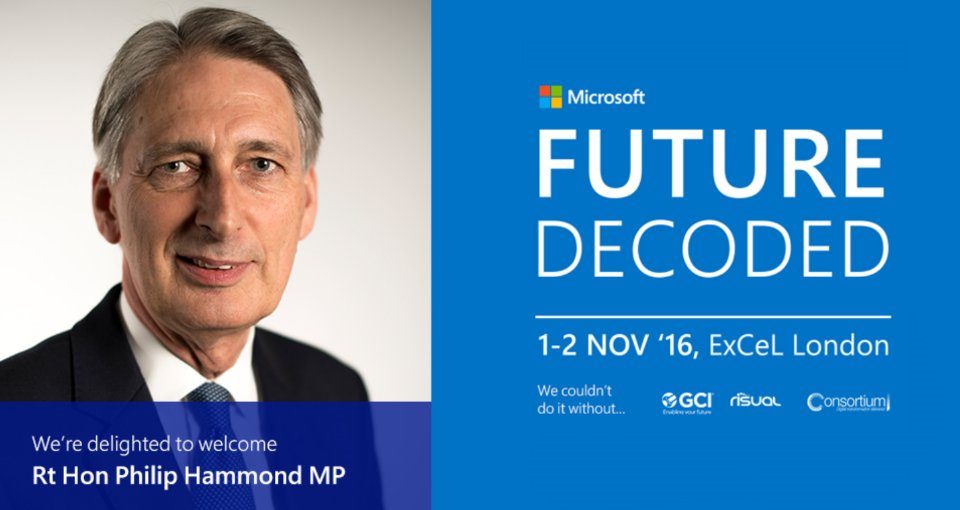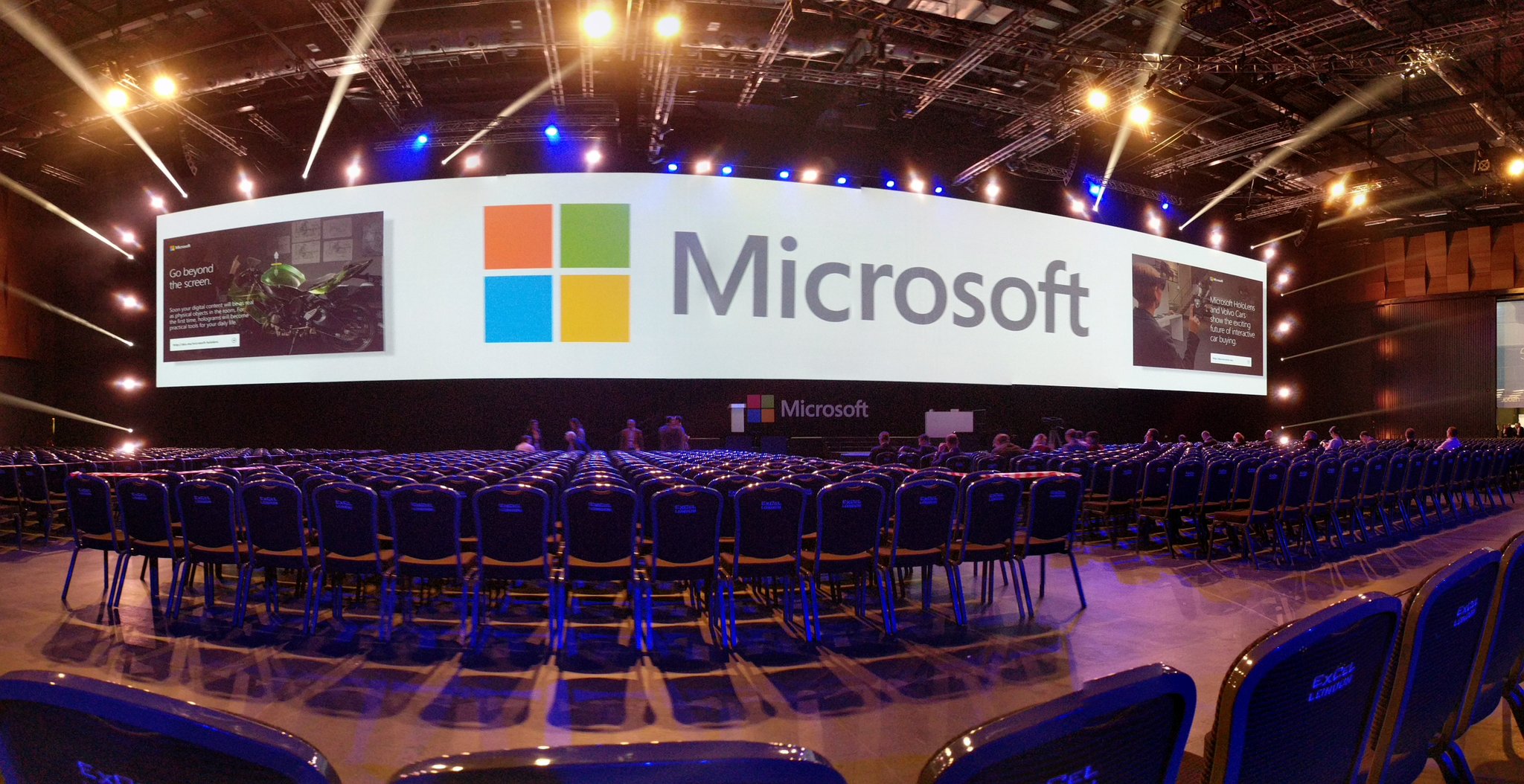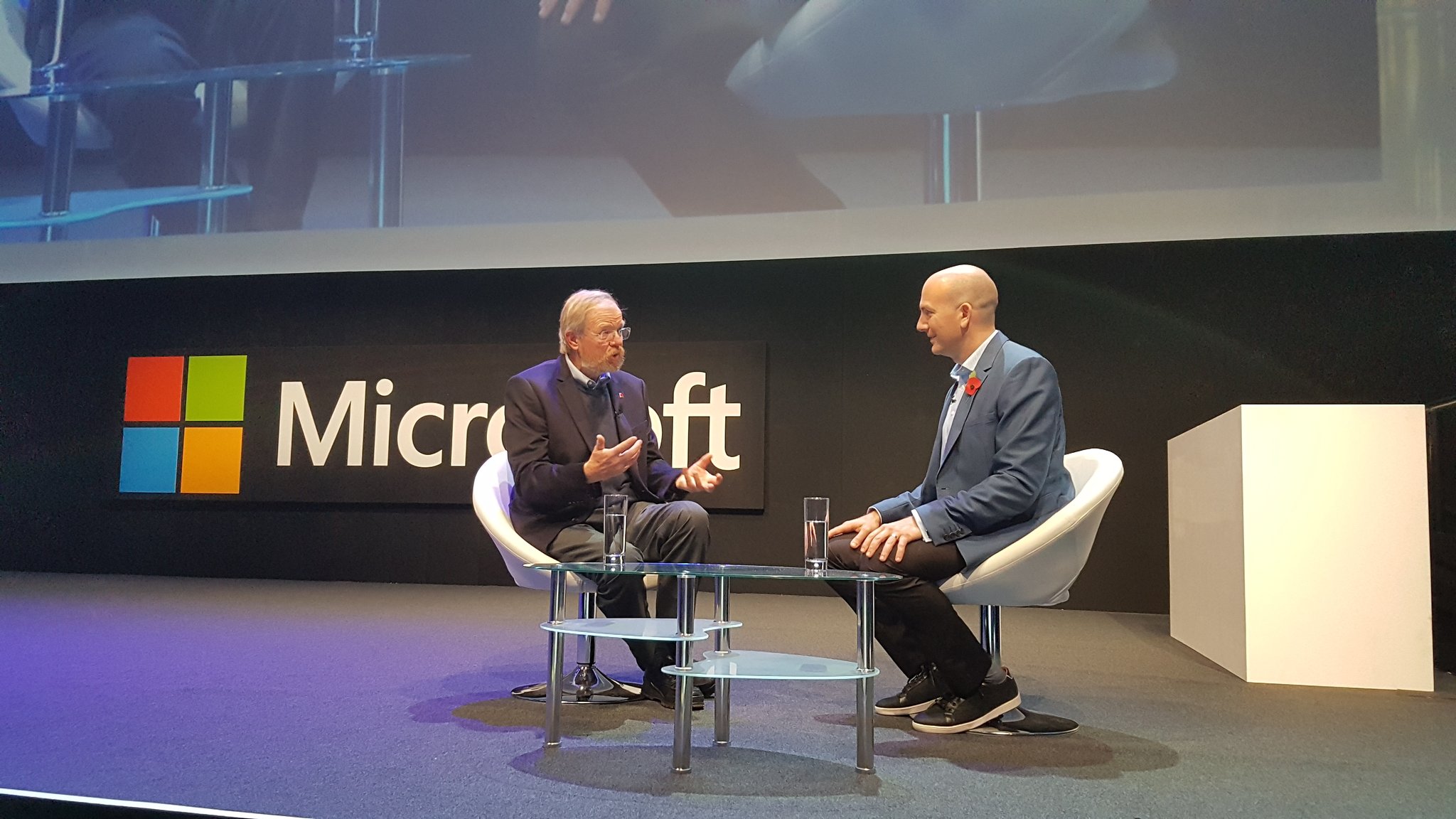Phillip Hammond, the Chancellor of the Exchequer, has used his keynote speech at Microsoft’s Future Decoded event to launch a new National Cyber Security Strategy and “strike back” against cyber criminals.
Speaking on the first day of the technology conference Hammond said his “three-pillar plan” of Defend, Deter and Develop to protect the privacy of citizens, tackle online criminals and boost internet security skills would provide a “once in a lifetime opportunity to futureproof the economy of post-Brexit Britain”.
“Britain is already an acknowledged global leader in cyber security thanks to our investment of over £860 million in the last Parliament, but we must now keep up with the scale and pace of the threats we face,” he told thousands of attendees at Future Decoded, Microsoft’s annual event aimed at showing how businesses can digitally transform, at London’s ExCel.
Philip Hammond at Future Decoded
“Our new strategy, underpinned by £1.9 billion of support over five years and excellent partnerships with industry and academia, will allow us to take even greater steps to defend ourselves in cyberspace and to strike back when we are attacked.”
Hammond pointed to the history of technological innovation and current growth of the tech industry in the UK, up 42% since 2010, to enforce his belief that “the UK is strongly positioned to be at the cutting-edge of the digital revolution”. As a “strong advocate” that the role of technology is to transform society and build the economy, the Chancellor emphasised that “technology has the power to make everyone in society better off, to lower costs, to raise living standards”.
However, he was keen to stress that “if we want Britain to be the best place in the world to be a tech business, then it is also crucial that Britain is a safe place to do digital business”, noting that “trust in the internet…is fundamental to our economic future” – particularly with the growing increase in cyber attacks, now classified as a “Tier One” threat by the Government.
The Government has created a new Cyber Security Research Institute, a network of UK universities dedicated to studying security issues, a Cyber Innovation fund, a National Cyber Security Centre and new jobs within the cyber security sector. Speaking earlier in the day at Future Decoded, Dr Ian Levy, technical director of the new National Cyber Security Centre, said that the new strategy “will fundamentally change the return on investment of attack in the UK”.
Microsoft has highlighted the need for a new approach to security in today’s mobile-first, cloud-first world, where connected technologies increase user exposure to cyber threats.
In her speech to open Future Decoded, Cindy Rose, Microsoft’s UK CEO, said that “the mobile-first, cloud-first world holds enormous potential for organisations and individuals to generate new and exciting growth opportunities. However, there is a corresponding risk that as people increase their technology usage they also increase their exposure to cyber security threats.”
“All participants in the security ecosystem…need to work together to ensure everyone can trust the technology they use. The Chancellor’s announcement is the kind of initiative that the UK needs to protect British citizens from the growing threats we face. We welcome the Government’s focus on tackling this significant issue which affects business and individuals alike,” she added.
Day one of Future Decoded closed with a question and answer session from author Bill Bryson. Sharing his “fascination with the whole idea of how scientists figure things out”, Bryson noted that “‘there isn’t anything to do with science that doesn’t make me staggered”. Asked about the UK’s role in science and technology, Bryson echoed Hammond’s earlier emphasis about the nation’s strength in these industries. Stating that “one of the things that Britain has always been outstanding at is science”, the author observed an “ability to be curious and work things out” which has led a country with only 1% of the world’s population writing 10% of the world’s science papers.
The day also featured a talk by Chris Bishop, Lab Director at Microsoft Research Cambridge, who demonstrated an update to Microsoft Translator that can translate several languages in real-time in single conversation.
Outside the auditorium, schoolchildren took part in the BBC micro:bit rocket car challenge, which saw them build vehicles out of foam and fire them at up to 50mph along.
Bill Bryson (left) on stage with Microsoft’s Ryan Asdourian at Future Decoded
Future Decoded will continue on Wednesday, with a Technical day featuring the first developer showcase of HoloLens in the UK.









